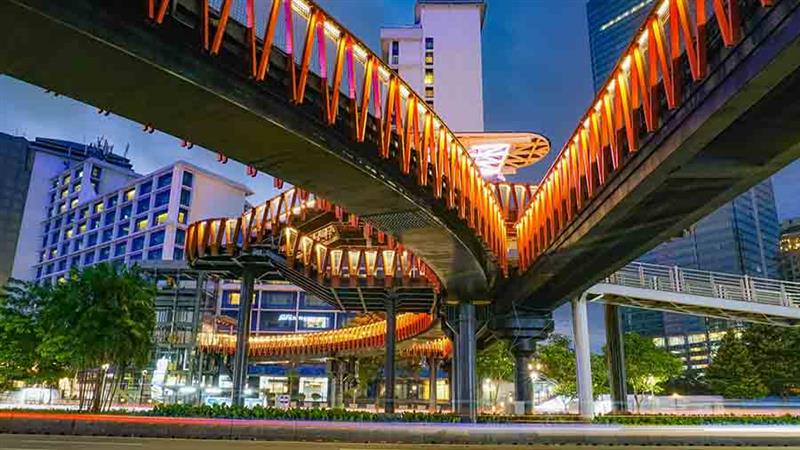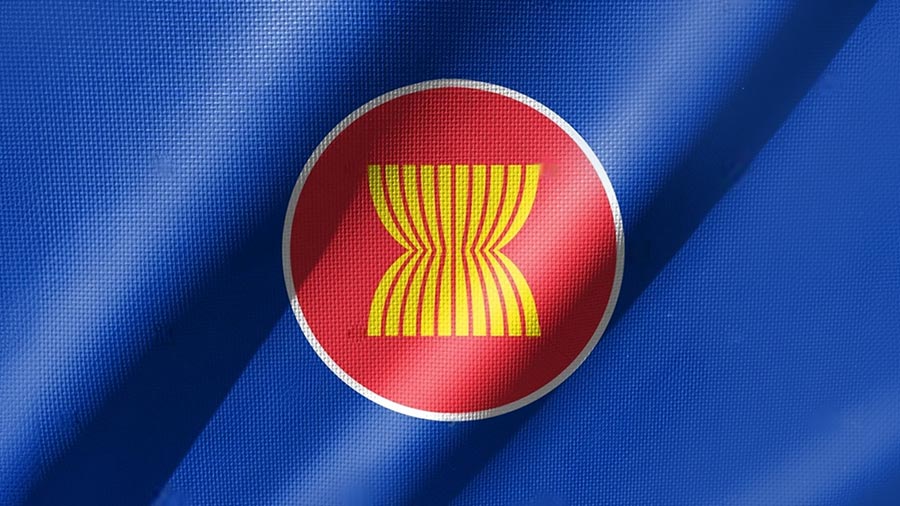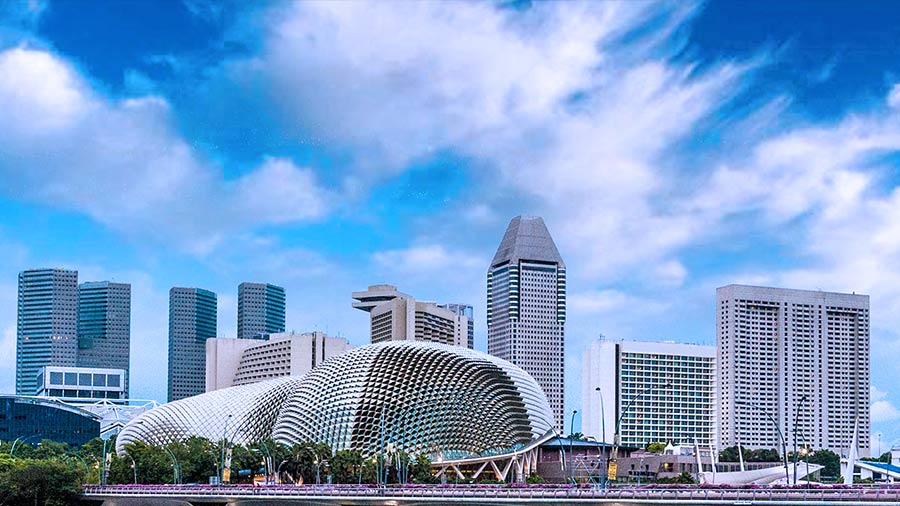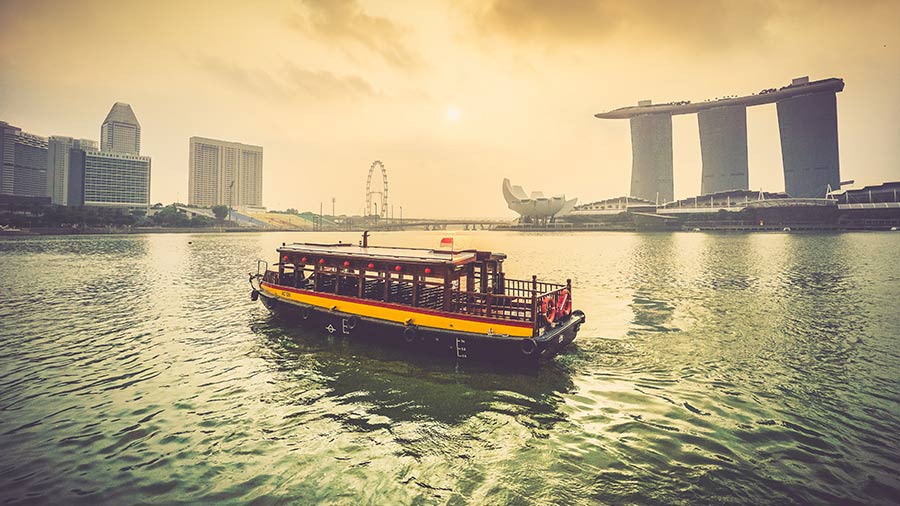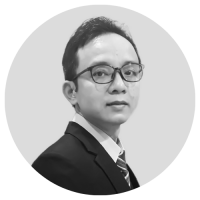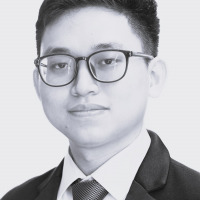Why Singapore for permanent residency?
Singapore's allure as a place to live and work is underpinned by several key factors that make it particularly attractive to potential permanent residents. Its strategic location in Southeast Asia not only positions it as a gateway to the expansive Asia-Pacific region but also facilitates effortless access to global markets, enhancing its appeal to international professionals and investors.
The robustness of Singapore’s economy is evident in its stable GDP growth, a competitive business environment, and a sophisticated financial sector, making it a favorable investment destination.
Political stability in Singapore is another significant draw. The nation is known for its reliable and transparent government that not only promotes but also implements business-friendly policies efficiently. This political climate ensures a secure environment for both personal and professional ventures.
Moreover, Singapore is recognized for its exceptional quality of life. It blends a safe and clean-living environment with top-notch healthcare, world-class educational facilities, and a vibrant array of cultural experiences. This cosmopolitan lifestyle is supported by a world-class infrastructure that includes modern transportation systems, cutting-edge telecommunications, and advanced industrial facilities, all ensuring that daily operations and connectivity are seamless.
Whether you are a professional seeking better career prospects or an investor looking for a stable environment, understanding the multifaceted benefits and responsibilities that come with becoming a Singapore Permanent Resident (PR) is crucial. This article will serve as your roadmap, detailing both the strategic advantages and the commitments that accompany PR status in Singapore.
Overview of permanent residency in Singapore
Definition and benefits of permanent residency
Permanent Residency in Singapore is a status granted to foreigners that allows them to reside indefinitely within the country, providing them with substantial rights similar to those of citizens. The Singapore Immigration & Checkpoints Authority (ICA) oversees the application process, which as of mid-2023, includes about 540,000 PRs within the nation’s total population of 5.92 million.
The followings are several benefits that PR status offers, making it an attractive option for many:
- Reside in, enter, and exit Singapore without the need for separate visas for work or travel. Blue Card will be issued, which serves as your identification.
- Include spouse and unmarried children under 21 in the PR application. School-aged children enjoy high priority, just behind citizens, for placement in public schools of choice.
- Apply for extended-stay visas for applicants’ parents.
- Switch jobs without the need to reapply for a work permit. If applicants have a work-related visa and wish to change employment, they can do so without the need to cancel and reapply for a new visa, avoiding potential delays or rejections.
- Participate in a flexible pension system, the Central Provident Fund (CPF), and withdraw a lump sum upon reaching retirement age at 55.
- Benefit from the financial and tax advantages of the CPF scheme, where both applicants and their employer make monthly contributions towards applicants’ pension, usable for healthcare, housing, family protection, and asset growth.
- Gain higher priority when applying for various loans, such as housing loans. As a PR holder, applicants are also eligible to purchase resale units of government HDB flats, while only citizens can buy new ones.
- After residing for a certain number of years as a permanent resident, become eligible to apply for full Singaporean citizenship, allowing PRs to obtain a Singapore passport and the same rights as native-born citizens.
- Take advantage of a stable job market with many opportunities or start a business using various available business structures and government grants for support.
- Access high-quality healthcare services at both government and private hospitals, polyclinics, and private clinics.
Eligibility criteria
General requirements
The eligibility for PR status broadly considers:
- The applicant’s family ties to Singaporeans;
- Economic contributions, qualifications, society integration; and,
- Applicants must demonstrate a commitment to residing in Singapore long-term, showing stability in their professional and personal lives.
Schemes-specific eligibility
Professionals/Technical Personnel and Skilled Workers (PTS) Scheme
This scheme is primarily available for foreign professionals who are currently employed in Singapore under an Employment Pass or EntrePass. Applicants should have a record of stable employment and must have resided in Singapore for at least two years before applying.
Global Investor Programme (GIP)
Managed by the Singapore Economic Development Board, the GIP is aimed at affluent investors willing to inject a minimum of S$2.5 million (US$1.8 million) into the Singaporean economy. This could be through business development or other approved investment funds.
Foreign Artistic Talent Scheme (ForArts)
Designed for internationally recognized artists in the fields of visual arts, literary arts, performing arts, design, and media, this scheme is a collaboration between the ICA and the National Arts Council. Applicants must demonstrate exceptional artistic merit and a significant portfolio that has international acclaim.
Family ties
Family-related eligibility extends to the spouse, unmarried children under 21, and aged parents of a Singapore citizen or existing PR holder. This pathway emphasizes the importance of family unification under the PR status.
Students
International students studying in Singapore can apply for PR under specific conditions, such as:
- Having studied in Singaporean institutions for a considerable duration; and,
- Demonstrating academic excellence and integration into the local community.
This pathway often requires the students to have familial ties to Singapore or to have made significant contributions to their schools or local community.
Comparison with citizenship
While permanent residents enjoy many rights akin to citizens, there are distinctive benefits and obligations that only come with citizenship. The distinctions are breakdown within the table below:
|
Permanent Residency (PR) vs. Citizenship |
||
|
Aspect |
Permanent Residency (PR) |
Citizenship |
|
Voting rights |
PRs do not have the right to vote. |
Citizens have the right to vote in elections. |
|
Housing benefits |
PRs can purchase resale public housing (HDB flats) but have fewer grants and subsidies compared to citizens. |
Citizens receive more extensive housing grants and subsidies and can apply for new HDB flats. |
|
Employment |
PRs are eligible for most private sector jobs, but some public sector jobs are restricted to citizens. |
Citizens are eligible for all public sector jobs and enjoy broader job opportunities in government and related entities. |
|
Travel documents |
PRs use a re-entry permit to travel and must ensure it is valid to maintain their residency status. |
Citizens use a Singapore passport which provides visa-free or visa-on-arrival access to many countries, enhancing global mobility. |
|
National service |
Male PRs are required to serve in the National Service, with exemptions linked to the specific PR scheme. |
Male citizens are required to serve in the National Service with no exemptions based on socio-economic schemes. |
|
Security of Status |
PR status can be revoked due to reasons such as criminal convictions or failure to renew re-entry permits. |
Citizenship is a permanent status and cannot be revoked for reasons that might affect PR status. |
|
Pathway to Citizenship |
PRs can apply for citizenship after fulfilling residency requirements, typically involving a rigorous assessment of their contributions. |
Not applicable as this is the final status. |
|
Tax obligations |
PRs are subject to tax on income earned in Singapore and on certain income from abroad, depending on tax residency status. |
Similar to PRs, but citizens may benefit from certain tax reliefs and incentives, especially in relation to property and inheritance tax. |
|
Social security benefits |
PRs contribute to and benefit from the Central Provident Fund (CPF) but with some limitations compared to citizens. |
Citizens have full access to CPF benefits, including more favorable withdrawal conditions and rates. |
|
Education |
PR children have a priority for school placement after citizens, facing more competition for spots in preferred schools. |
Children of citizens are given the highest priority in school placements and access to educational resources and scholarships. |
|
Healthcare |
PRs have access to public healthcare but at a higher cost than citizens. |
Citizens enjoy subsidized rates in public healthcare facilities, providing them with more affordable healthcare options. |
|
Property ownership |
PRs can buy resale HDB flats and private properties but are restricted from buying new HDB flats. |
Citizens can purchase both new and resale HDB flats and have fewer restrictions on property purchases. |
|
Political participation |
PRs cannot participate in political processes such as elections or holding public office. |
Citizens can participate fully in the political process, including standing for public office. |
Application process
Step-by-step guide for each scheme
Each PR scheme has specific steps tailored to the applicant's circumstances:
- Professionals/Technical Personnel and Skilled Workers (PTS): Applicants must have a valid Employment Pass or S Pass and should have been employed in Singapore for a minimum of two years. The process involves gathering detailed employment records, educational certificates, and proof of income.
- Global Investor Programme (GIP): Aimed at foreign investors willing to invest a minimum of S$2.5 million (US$1.8 million) in the Singapore economy. The application involves coordination with the Economic Development Board (EDB) and detailed investment plans.
- Foreign Artistic Talent Scheme (ForArts): Applicants must demonstrate international recognition in their artistic fields. The process requires extensive documentation of artistic achievements and future contributions to Singapore’s cultural landscape.
Documentation
Common documents required across all schemes include:
- Passport and valid work or immigration pass.
- Employment and income verification.
- Educational and professional qualifications.
- Background declaration forms.
- Family status documents (marriage certificates, birth certificates for children).
Below is a detailed table comparing the required documentation across three primary schemes: the Professionals/Technical Personnel and Skilled Workers Scheme (PTS), the Global Investor Programme (GIP), and the Foreign Artistic Talent Scheme (ForArts).
|
Document |
PTS Scheme |
GIP Scheme |
ForArts Scheme |
|
Application Form |
e-PR System Declaration Form |
Application Forms A, B, C |
ForArts Application Form |
|
Passport & immigration pass |
Required |
Required |
Required |
|
Identity card |
If applicable |
If applicable |
If applicable |
|
Birth certificate |
Required |
Required |
Required |
|
Deed Poll/Change of Name |
If applicable |
If applicable |
If applicable |
|
Employment Pass or S Pass |
Required |
Not applicable |
Not applicable |
|
Employment details |
Letter from employer, pay slips |
Not directly required |
Not directly required |
|
Educational & professional qualifications |
Required |
Required |
Required |
|
Financial records |
Tax documents, pay slips |
Financial statements, business registration |
Not directly required |
|
Criminal record check |
Required |
Required |
Required |
|
Investment proof |
Not applicable |
Proof of investment, business plan |
Not applicable |
|
Marriage and Children’s Documents |
If including spouse/children |
If including spouse/children |
If including spouse/children |
|
Artistic portfolio |
Not applicable |
Not applicable |
Required (resume, portfolio) |
|
Business documents |
Not applicable |
Business registration, shareholding structure |
Not applicable |
|
Additional specific documents |
Consent form for financial verification |
Detailed business plan, ACRA registration |
Additional documents by NAC |
Submission process
All applications for permanent residence must be made online through the e-Service. Applicants have the option to enter their details directly online or to download, fill out, and then upload the PR application form via the online platform.
Submit the PR application online using a valid Singpass account if you are one of the following:
- A Singapore citizen or PR applying for your spouse or unmarried child under the age of 21;
- A Singapore citizen applying for your aged parent; and,
- An Employment Pass or S Pass holder applying for yourself and your spouse or unmarried child under the age of 21.
Foreign investors in Singapore can apply for PR through the Singapore Economic Development Board's Global Investor Programme.
Fees
- S$100 (US$ 73) processing fee per applicant, non-refundable.
- Payments can be made through:
- Visa or MasterCard credit/debit card; or,
- American Express (AMEX) credit card; or,
- Internet Direct Debit (DBS/POSB, OCBC, UOB and Standard Chartered Bank Internet Banking accounts in Singapore); or,
- PayNow.
- Includes fees for Entry Permit, Re-Entry Permit, and Identity Card. Total post-approval fees can amount to around S$120 (US$ 88) per applicant.
Processing time
Processing can take up to six months, depending on the completeness of the application and the specific scheme. Applicants can check the status of their applications online through the ICA’s portal or the e-Service.
Post-approval formalities
New PRs must undergo a medical examination, and then visit the ICA to register for their Identity Card and Re-Entry Permit.
Additional costs include:
- Entry Permit (S$20) (S$14),
- Five-year Re-Entry Permit (S$50) (S$36), and
- The Identity Card (S$50) (S$36).
Male PRs, depending on their age and the scheme through which they obtained PR, may be required to fulfill National Service commitments. Specific details and potential exemptions should be discussed with the ICA during the application process.
Maintaining PR status
The Re-Entry Permit (REP) is an essential document for any SPR planning to leave Singapore temporarily. This permit confirms the applicants’ intention to return and maintain their permanent resident status.
Without a valid REP, SPRs who leave Singapore, risks losing their permanent resident status, which underscores the necessity of ensuring the REP is always up to date before traveling abroad.
Renewal procedures
Renewing REP should be a proactive process. If the REP is valid, applicants can renew it online through the Immigration and Checkpoints Authority's (ICA) Electronic Re-Entry Permit System (e-REP).
However, if the REP has already expired, applicants must schedule an appointment with the ICA and renew the permit in person. It is critical to not let the REP lapse to avoid complications with the residency status upon the return to Singapore.
The most common reason for losing PR status is failing to renew the REP before traveling outside of Singapore. This oversight can lead to the automatic revocation of permanent residency upon attempting to re-enter Singapore without a valid permit.
SPRs are advised to keep a close eye on the expiration dates of their documents and to engage with the renewal process timely to prevent any risk of losing their status.





